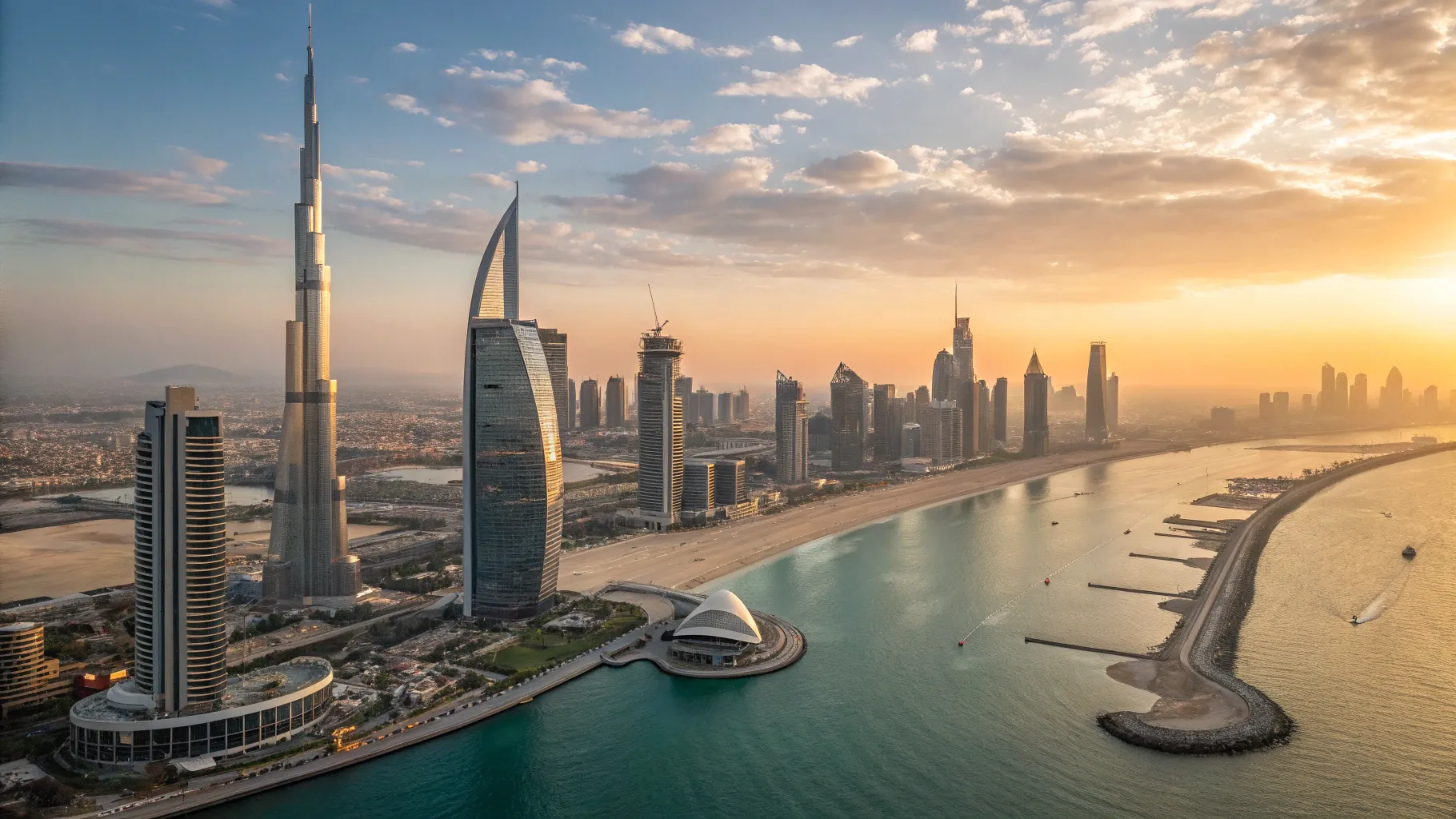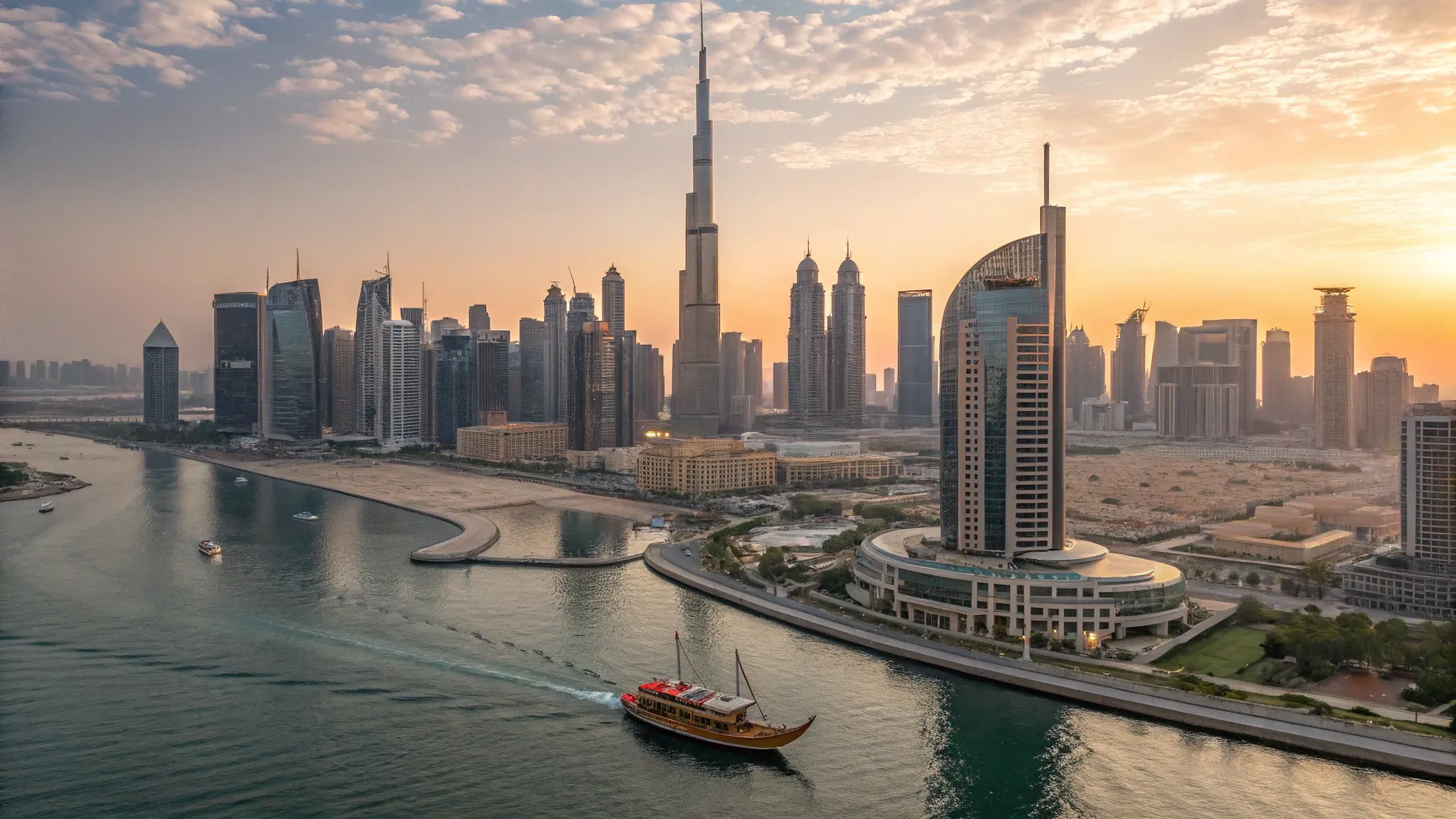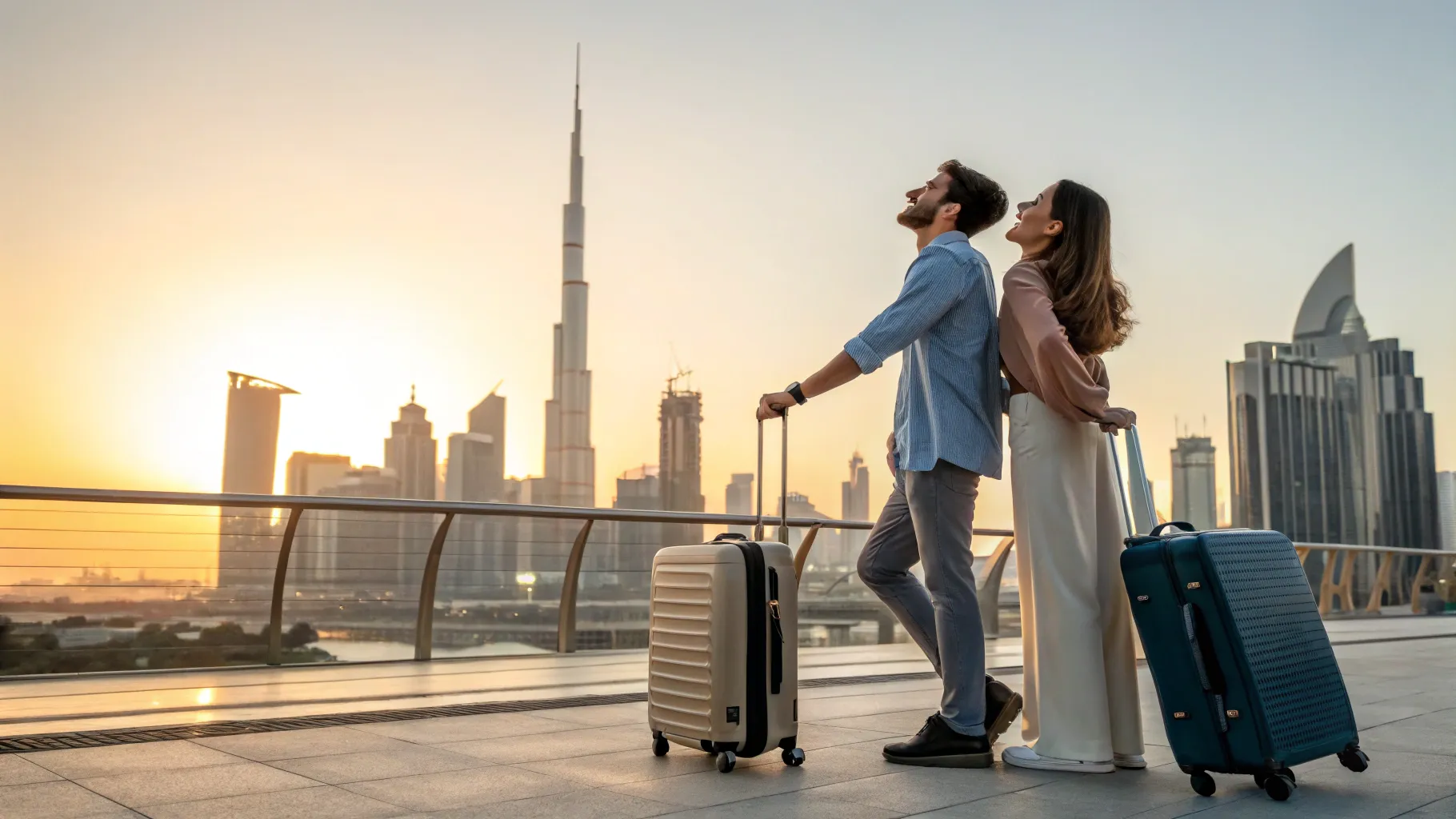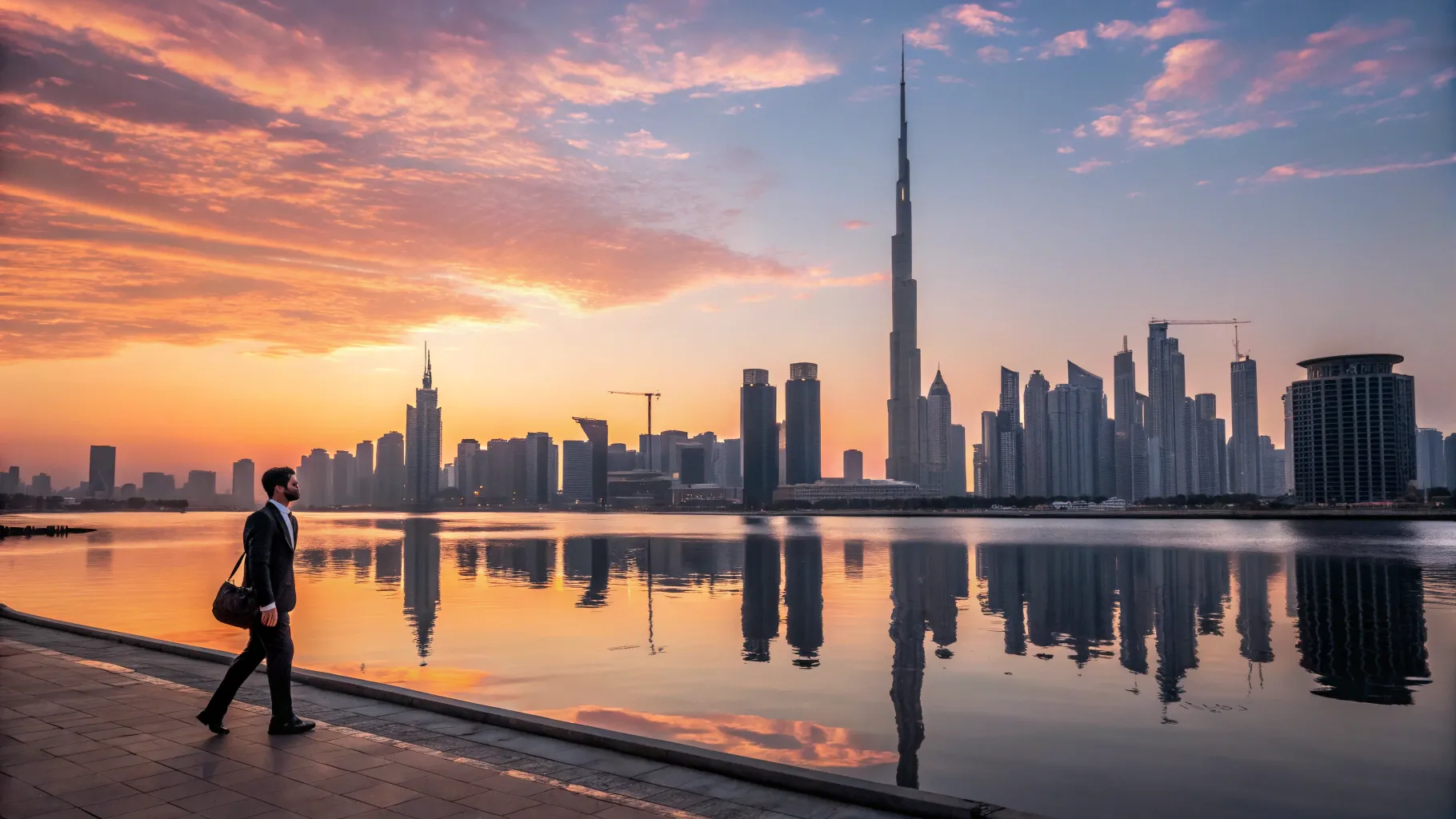- Blog
- best free zones dubai
9 Best Free Zones in Dubai for Company Setup (2026 Guide)

Explore the top-rated free zones in Dubai. From DMCC to IFZA, find the best fit for your business with 100% ownership and 0% tax benefits. Read our 2026 analysis.
Founder of JustMove
Summarize content with
Get AI-powered insights and summaries of this article
Just Move is the preferred partner of entrepreneurs
Expert in incorporation, accounting and immigration
Trusted by over 500+ entrepreneurs
4.9/5 reviews from our clients
100% satisfaction across all services
As we navigate 2026, Dubai continues to solidify its position as the premier global destination for innovative commerce and strategic expansion. For entrepreneurs and investors, the primary challenge is identifying the best free zones dubai offers to match their specific business objectives and operational needs.
This guide is designed for startups, SMEs, and freelancers who need to navigate the complexities of a free zone company formation. You will learn how to choose the right jurisdiction from the massive ecosystem of uae free zones to maximize your growth and tax efficiency.
Free trade zones in the UAE are designated economic areas where businesses can trade goods and sell services, with over 40 zones across the UAE designed to facilitate smooth operations. A core feature is that companies registered in a free zone in uae are allowed 100% foreign ownership.
With over 20 dubai free zones currently active, the options can be overwhelming for those new to the market. To simplify your journey, we have curated a recommendation of the top 10 free zones for business setup. Understanding the nuances of different free zones in the uae ensures you select the hub that best supports your industry requirements.
Selecting a specific free zone dubai location often depends on your license type and office requirements. Each jurisdiction offers a unique set of benefits tailored to specific sectors, from technology and media to logistics and retail.
Strategic Advantages of Dubai Free Zones
Selecting the best free zones dubai offers allows you to leverage the UAE’s "four zeros" framework. Entrepreneurs benefit from zero currency restrictions, customs tax, and full profit repatriation. This is bolstered by 100% foreign ownership, allowing investors to maintain total control over their free zone company.
Why Start a Free Zone Company in UAE
Across over 40 free zones operating in the UAE, easy visa acquisition for employees is a standout feature. This process addresses a major pain point for international startups looking to scale. Just Move ensures your license is typically issued in 1–5 business days, facilitating rapid market entry.
This guide compares the best free zones in Dubai and the UAE based on key criteria:
- Corporate Tax Guide UAE: Most uae free zones maintain 0% tax on qualifying income.
- Selection: Comparing the top 10 free zones for industry-specific needs.
- Ownership: Every free zone in uae permits 100% foreign ownership.
Navigating the various free zones dubai and free zones in uae offers requires matching your sector to the right jurisdiction. Choosing a dubai free zones setup ensures you maximize legal perks while securing stability within a free zone dubai environment.
Understanding these overarching benefits sets the stage for a deeper look at the specific jurisdictions currently leading the market.
The Top 9 Free Zones for Your Business in 2026
Identifying the best free zones dubai offers requires a sector-specific strategy. As we move through 2026, the landscape of uae free zones has evolved to provide specialized support for digital-first enterprises. Just Move facilitates this transition by managing your entire free zone company registration 100% online.
Choosing Among the Best Free Zones Dubai for Your Sector
1. Jebel Ali Free Zone (JAFZA): Jebel Ali Free Zone Authority (JAFZA) is listed as the first best free zone in the UAE for business setup. It remains the oldest and largest ecosystem for industrial and logistics operations. Companies utilize JAFZA specifically for its proximity to one of the world’s largest ports, making it ideal for high-volume trade.
2. Dubai Multi Commodities Centre (DMCC): Dubai Multi Commodities Centre (DMCC) Free Zone is the second recommended free zone for company formation. Located in the business district of JLT, it serves as the primary hub for global commodities. This free zone dubai is perfect for entrepreneurs who require a prestigious physical address and access to international trade flows.
3. International Free Zone Authority (IFZA): International Free Zone Authority (IFZA) is ranked as the third best free zone in the UAE. We categorize IFZA Dubai as a competitive free zone because of its remarkable flexibility and setup speed. This jurisdiction works by offering scalable license options that cater to freelancers and SMEs looking for a quick market entry.
4. Dubai CommerCity: Dubai CommerCity is the first fully dedicated e-commerce free zone in the MENASA region and is government-owned. It provides a unique hybrid of office space and fulfillment centers. For those looking at free zones in the uae for retail technology, this hub integrates seamlessly with the 2026 digital compliance and e-invoicing requirements.
5. Fujairah Free Zone: The Fujairah Free Zone is mentioned as a functioning and competitive free zone for budget-conscious investors. It operates as a cost-efficient alternative for those who do not require a central city presence. Just Move helps you leverage these free zones in uae to maximize your initial capital while maintaining a professional corporate structure.
Establishing a presence in these dubai free zones ensures your business benefits from 100% ownership and zero income tax. Our team at Just Move guarantees license issuance in 1–5 business days, allowing you to focus on your commercial strategy while we handle the complex legal framework and banking assistance, including how to open a bank account in Dubai.
Selecting the right jurisdiction is only the first step in a larger strategic roadmap. The next phase involves understanding the specific financial and administrative commitments required to maintain your legal status in the Emirates.
Setup Costs and Financial Considerations
Understanding the financial barrier to entry is essential when evaluating the best free zones dubai has to offer for your startup. For a detailed breakdown of expenses, refer to our comprehensive guide on Dubai company setup cost. You can also estimate your Dubai business setup cost in 60 seconds with our free calculator. For those prioritizing cost-effectiveness, IFZA Dubai stands out as one of the most affordable options, with license costs starting at approximately AED 12,900, offering fast setup and flexibility.
Cost Comparison for Dubai Free Zones
SHAMS (Sharjah Media City): This is a budget-friendly option with licenses starting around AED 8,050, supporting over 1,200 business activities including e-commerce. It remains a popular choice for digital nomads looking at uae free zones.
E-commerce Benchmarks: The average cost for an e-commerce license in a free zone dubai ranges between AED 8,050 and AED 15,000, depending on the specific free zone and visa requirements.
Scaling Operations: While exploring the top 10 free zones, costs vary based on office requirements. Utilizing the various free zones in uae allows entrepreneurs to scale setup costs in line with their projected revenue growth.
Navigating 2026 Tax Regulations
In 2026, free zones in the uae offer major advantages, but they require active management. A free zone in uae may benefit from a 0% corporate tax rate if specific conditions are met, such as satisfying economic substance and maintaining physical offices.
This 0% rate is not automatic; a free zone company must actively elect for relief or prove Qualifying Income status when filing. Ensuring your dubai free zones entity stays compliant prevents penalties and secures your long-term residency benefits.
Beyond the initial license fees, the long-term success of your venture depends on choosing the right legal structure for your specific operational needs.
Frequently Asked Questions
Which of the best free zones dubai offers is right for me?
The best free zones dubai offers depend on your specific business sector and operational requirements. DMCC is the premier hub for global trade, while IFZA is an excellent free zone dubai option for consultants due to lower entry barriers. Choosing among free zones dubai requires matching your specific commercial activity to the zone's unique incentives.
Which freezone is the cheapest in Dubai?
IFZA and Dubai CommerCity offer some of the most cost-effective rates among uae free zones, with licenses starting at approximately AED 12,900. For a lower entry point for a free zone in uae, SHAMS in Sharjah offers licenses from AED 8,050. These locations are ideal for any free zone company prioritizing budget without sacrificing access to the UAE market.
Is there a free zone in Dubai?
Dubai features over 20 distinct dubai free zones, each catering to specific industries such as technology, media, and healthcare. These hubs are often ranked within the top 10 free zones globally for their infrastructure and Ease of Doing Business scores. Our guide provides information on all of Dubai's free zones to help you navigate the landscape of free zones in uae efficiently.
Is 5000 AED a good salary in Dubai?
A salary of 5000 AED is a manageable starting wage for an entry-level professional beginning their career in the UAE. This income typically covers basic cost of living in Dubai, including food and housing in affordable areas like Sharjah or specific Dubai suburbs. It provides a financial baseline for newcomers establishing themselves while working for a free zone in the uae.
Having addressed these common concerns, the focus shifts toward the practical steps of preparing your residency and corporate documentation.
Making Your Choice for 2026
Selecting the right jurisdiction requires balancing your specific business activity with your long-term growth objectives. While most of the top 10 free zones offer 100% foreign ownership and zero income tax on qualifying income, the digital infrastructure and community support vary significantly between a standard free zone in uae and a specialized hub.
Choosing the best free trade zone in the UAE involves considering factors like company needs and support services. Whether you are launching a free zone company for consultancy or global trade, ensuring your choice aligns with 2026 compliance obligations, such as e-invoicing mandates and corporate tax filings, is essential for sustained success.
At Just Move, we simplify this decision-making process. Our digital platform allows you to establish your presence in the best free zones dubai offers in just 1 to 5 business days. Let us help you seamlessly launch your business in a Dubai free zone. By managing everything from licensing to residency 100% online, we ensure your entry into the uae free zones is seamless, transparent, and entirely hassle-free.
Founder of JustMove
Kasia is a renowned expert in business setup and relocation services in Dubai. With a proven track record as a top-performing account executive at PayPal and co-founder of luxury concierge service Alotea, she brings a wealth of experience to her role at JustMOVE. Kasia's deep understanding of the UAE market, extensive international connections, and multilingual capabilities (English, Polish, Russian, and French) make her an authority in navigating the complexities of business setup and relocation. Through the JustMOVE blog, Kasia shares her insights and practical advice to help entrepreneurs and families establish and grow their presence in the UAE. Her commitment to delivering personalized, transparent, and efficient solutions has earned her the trust of countless clients.
Check out more related articles

By Kasia

By Kasia
![Moving to Dubai from the US: Your Complete Guide [2025]](https://media.justmovedubai.com/Moving to Dubai from the US Your Complete Guide [2025].webp)
By Kasia

By Kasia

By Kasia

By Kasia